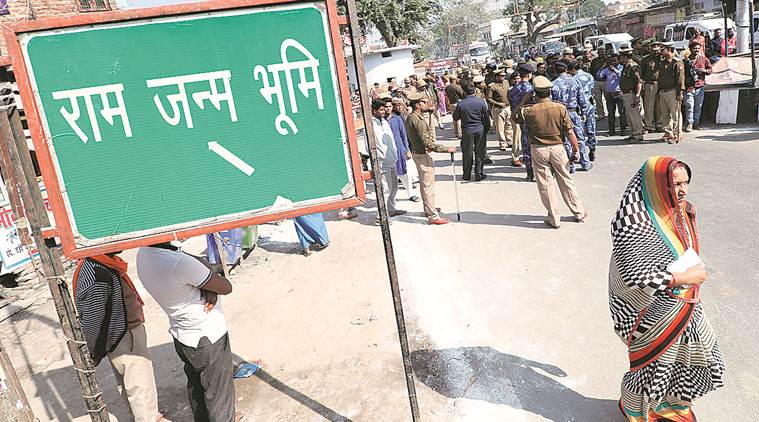
The Sunni Waqf Board on Thursday told the Supreme Court that Nirmohi Akhara would continue to have ‘shebait’ rights with respect to the idols of Hindu deities which were being worshipped in the outer courtyard of the disputed 2.77 acres in Ayodhya even if the Akhara’s suit is dismissed on the ground of limitation.
Senior advocate Rajeev Dhavan, appearing for the board and one of the appellants M Siddiq, told a five-judge Constitution bench headed by Chief Justice of India Ranjan Gogoi that he did not agree with the finding of the Allahabad High Court that the Akhara could not be recognised as having shebait rights, saying it was based on “insufficient grounds”.
A shebait under Hindu law is entrusted with the task of maintaining and preserving an idol and its property.
Dhavan had earlier accepted that idols of Hindu deities were being worshipped in Ram Chabutara on the outer courtyard of the disputed site and that Nirmohi Akhara had shebait rights but did not have ownership rights.
“They did have shebait rights and I can’t say dismissal of suit on grounds of limitation deprives them of it. That right continues all the way through,” Dhavan told the bench, which also comprised Justices S A Bobde, D Y Chandrachud, Ashok Bhushan and S A Nazeer.
The bench is hearing appeals against the September 30, 2010, verdict of the Allahabad High Court ordering a three-way division of the disputed area.
Justice Bobde then questioned Dhavan about the findings of the High Court in respect of the Akhara’s shebait rights. Dhavan read out from the High Court decision, which ruled against the Akhara’s shebait rights, and said, “I’m supporting the appeal of Nirmohi Akhara. The decision denying them shebait rights is on insufficient grounds, Till 1989, it was shebait unchallenged who was performing puja in the outer courtyard. Shebaits don’t disappear. This is not a case of vanishing shebait, but of contentious shebait.”
Dhavan also contended that the Akhara’s suit fell outside the period of limitation and deserved to be dismissed.
In a related development, the senior advocate complained to the bench about some people, allegedly clerks of some other lawyers, intimidating a member of his legal team outside the court on Wednesday over his appearance for the Muslim side. He said that though his relations with the lawyers on the other side in the court were cordial, “pressure outside leaves something to be desired”.
Dhavan also told the court that a minister had stated that ‘jagah bhi hamari, mandir bhi hamara, court bhi hamara’ (the place, temple and court is ours).
Taking note, CJI Gogoi said, “We will put it on record that such behaviour is to be deprecated. This is something that should not be happening. We are in the midst of arguments. Counsel for both sides must be free to make their submissions free from all influences, however subtle they might be. We strongly condemn it.”
Dhavan said he had also appeared for the Hindu side in cases like the one concerning Kamakhya Temple and Kashi, and added, “I’m not partisan and I certainly don’t argue against the Hindu faith.”